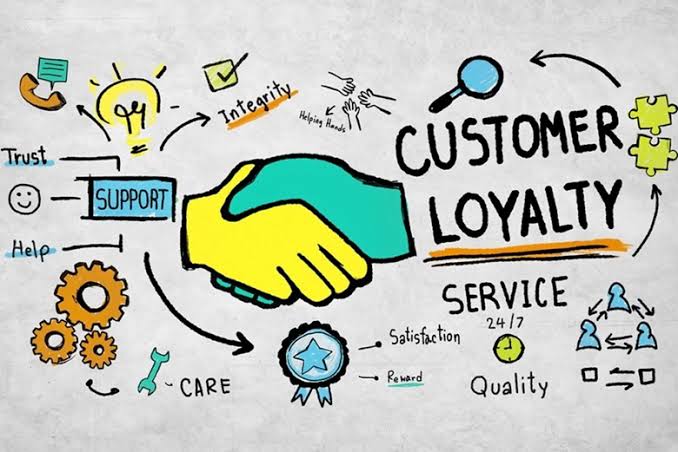Customer service is no longer just a support function—it is now a vital driver of customer loyalty and long-term business success. As of July 2025, consumers have higher expectations than ever. They want quick, personalized, and seamless interactions across all channels. Businesses that deliver consistent and empathetic service are more likely to win trust, retain customers, and foster loyalty in a competitive market.
In today’s landscape, trust is built not only through products and pricing but through the way a business treats its customers at every touchpoint. Whether through chat support, phone calls, emails, or in-person assistance, delivering excellent service requires strategy, consistency, and genuine care. Here are key customer service tips that, when applied effectively, can help businesses build lasting loyalty and trust in 2025.
Respond Promptly and Professionally
Customers value speed when they have questions or face issues. A slow or unresponsive customer service team can frustrate clients and damage your brand’s credibility. As of 2025, most consumers expect initial responses within minutes, especially when reaching out through live chat or social media.
Make promptness a core part of your customer service policy. Use automated tools like chatbots for quick replies while ensuring that human support is available when needed. Additionally, professionalism should never be compromised for speed. Ensure that your communication remains polite, helpful, and respectful, even in challenging situations.
Offer Consistent Omnichannel Support
Modern customers interact with businesses through multiple platforms—websites, mobile apps, social media, email, and phone. To build trust, businesses must offer consistent and unified support across all these channels. A customer shouldn’t have to repeat their issue every time they switch communication platforms.
Use an integrated customer relationship management (CRM) system that allows your team to track customer history and preferences across touchpoints. In 2025, AI-enhanced CRMs make this easier by unifying data and assisting agents with suggested responses based on previous interactions. Consistency and continuity in communication show that your business values the customer’s time and loyalty.
Train and Empower Your Support Team
Your customer service team is the face of your brand. Their actions and attitudes directly influence customer perceptions. Investing in regular training programs ensures that your staff can handle a variety of scenarios with competence and confidence.
Training should include not only product knowledge but also soft skills like empathy, active listening, conflict resolution, and cultural awareness. Empower your team to make certain decisions on their own, such as issuing refunds or solving small issues without management approval. This flexibility allows for faster resolutions and gives customers a sense of being valued and respected.
Personalize Every Interaction
Customers remember when they’re treated as individuals. Personalization in customer service goes beyond using a customer’s name—it involves recognizing their history, preferences, and unique concerns. Tailoring your responses to each customer’s situation demonstrates that your business cares about them on a personal level.
With advancements in AI and data analytics, it’s now easier to personalize support. For example, when a returning customer contacts support, your system should instantly provide their purchase history and previous inquiries. This not only speeds up the resolution process but also makes the interaction feel more human and respectful.
Be Transparent and Honest
Trust is built on transparency. If there’s a delay in service, a product issue, or a policy change, it’s best to communicate this openly rather than wait for customers to find out on their own. Honesty—even when things go wrong—strengthens credibility and customer respect.
If you make a mistake, own up to it and provide a clear plan for resolution. Whether it’s a delayed delivery, billing error, or technical glitch, timely and transparent communication helps customers feel informed and reassured. Trying to cover up errors or offering vague excuses only increases frustration and damages trust.
Actively Seek and Respond to Feedback
Customer feedback is one of the most valuable tools for improving your service. Regularly ask for feedback through surveys, post-service emails, or during support interactions. More importantly, act on the feedback you receive and communicate those improvements back to your customers.
In 2025, many companies are using real-time feedback dashboards to monitor satisfaction metrics like Net Promoter Scores (NPS) and Customer Satisfaction Scores (CSAT). These insights help identify weak points in the customer journey. When customers see that their input leads to real changes, they feel heard and are more likely to remain loyal to your brand.
Go the Extra Mile
Exceeding expectations can turn a satisfied customer into a loyal advocate. Small gestures like follow-up calls, personalized thank-you notes, or unexpected discounts can leave a lasting impression. The goal is to surprise and delight your customers without being prompted.
For example, if a customer expresses disappointment during an interaction, follow up with them a few days later to ensure the issue was resolved. If a loyal customer makes a large purchase, include a small freebie or handwritten note. These small efforts demonstrate genuine appreciation and help cement emotional connections with your brand.
Resolve Issues with Empathy
Not every customer interaction will be smooth. Complaints and conflicts are inevitable, but how your team handles them can define your brand. Train your staff to approach difficult situations with empathy. Listen without interrupting, validate the customer’s feelings, and focus on solving the problem rather than defending your company.
Using calming language, showing understanding, and offering clear solutions can often de-escalate tense situations. In 2025, businesses that respond with humanity rather than bureaucracy stand out in the minds of their customers. A well-handled complaint can actually increase loyalty if the customer feels their concerns were truly heard.
Reward Loyalty Meaningfully
Recognizing and rewarding loyal customers helps strengthen their connection to your business. Consider implementing a loyalty program that offers points, discounts, or early access to new products. But beyond programs, also look for meaningful ways to celebrate milestones—like customer anniversaries or significant spending achievements.
For example, a customized thank-you message on their one-year anniversary as a customer, or a surprise discount after five purchases, can reinforce that they are valued. Loyalty should be met with appreciation, not taken for granted.
Final Thoughts
Excellent customer service is about more than solving problems—it’s about building relationships that last. In 2025, customer loyalty and trust are earned through responsiveness, consistency, empathy, and personalization. By prioritizing the customer experience at every touchpoint, businesses can not only retain clients but also turn them into brand advocates.
The key is to treat every customer interaction as an opportunity to reinforce trust. Whether you’re resolving a complaint, answering a question, or simply expressing gratitude, these moments build the emotional foundation of loyalty. Businesses that embrace this approach will not only survive but thrive in a market where customer experience is king.




vplh4h